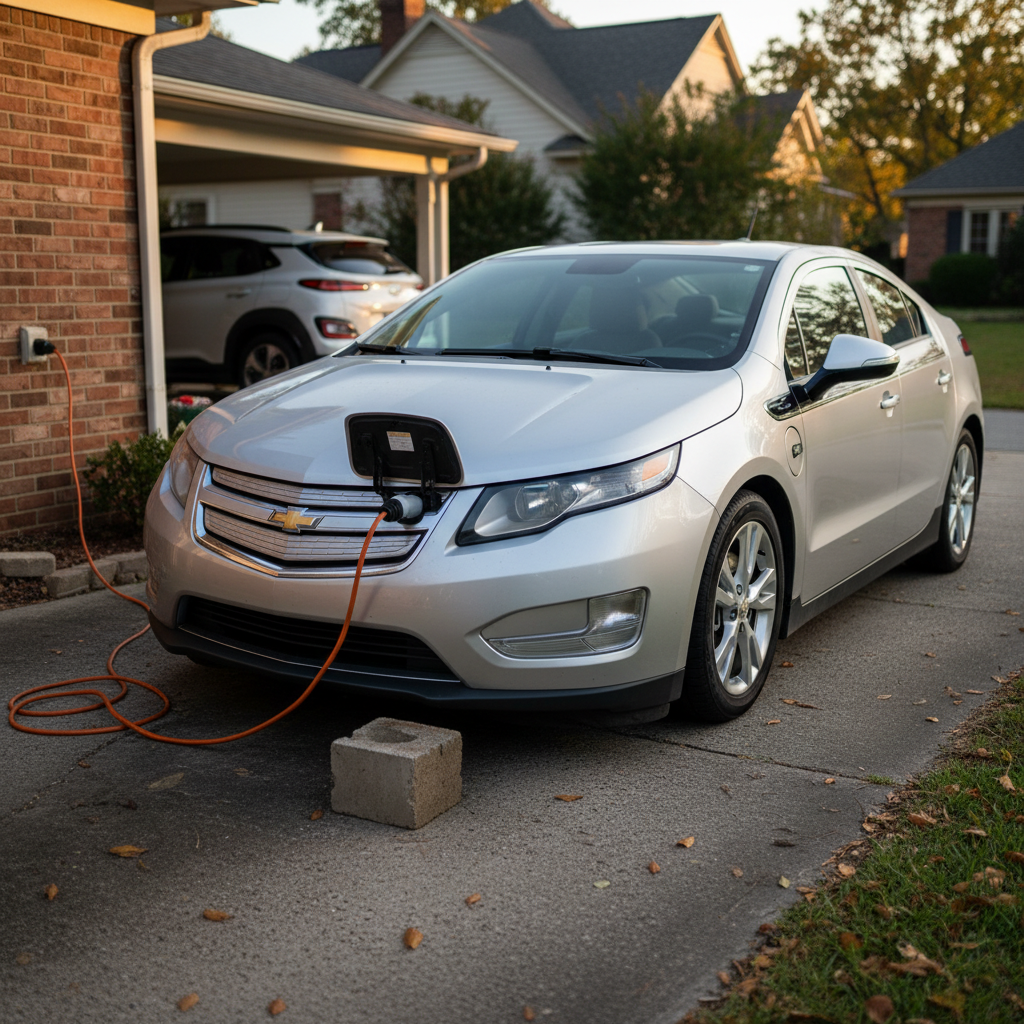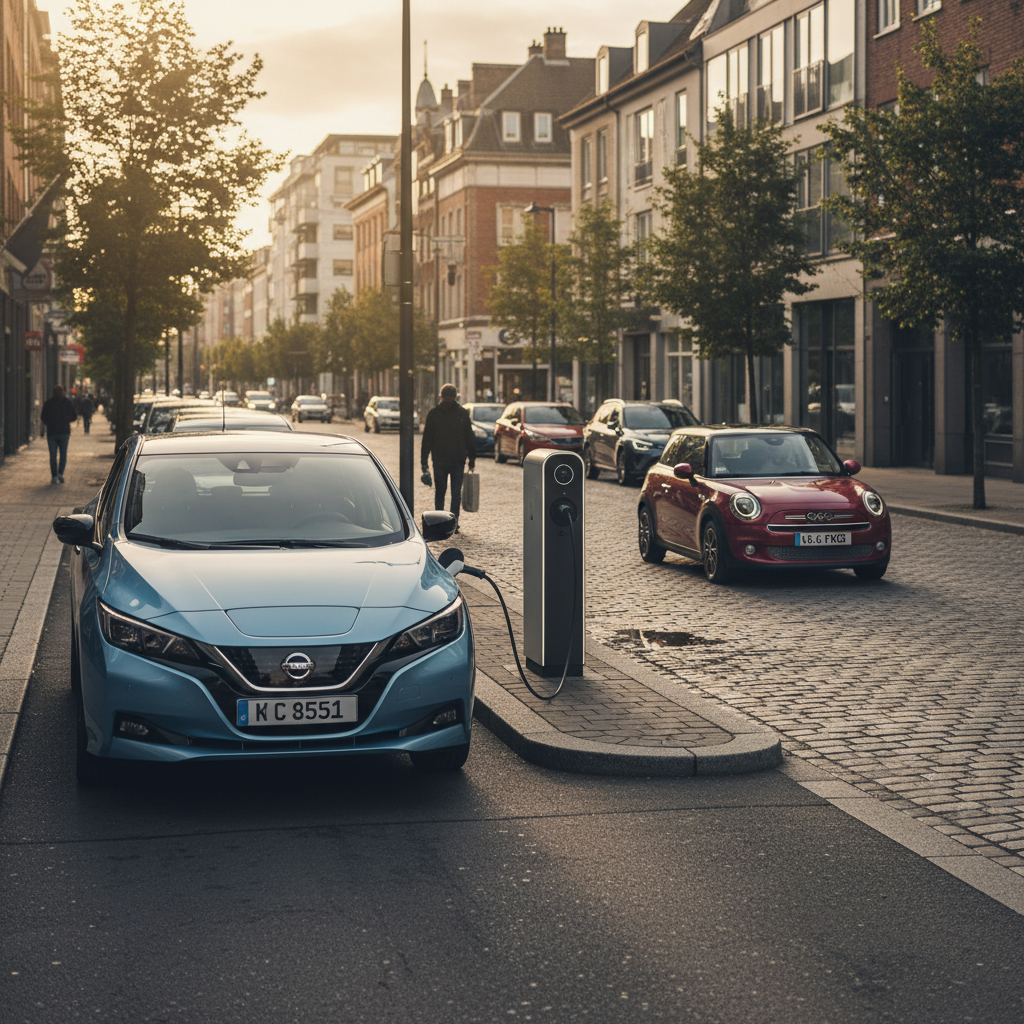If you type “EVs website” into a search bar today, you’ll see everything from basic explainer sites to massive car marketplaces. Some are great for learning whether an electric car fits your life. Others are built to sell you the first thing you click. Knowing the difference is the key to getting a good used EV instead of an expensive mistake.
Online-first car shopping is the new normal
Why the right EVs website matters in 2025
Electric vehicles are no longer a novelty. By late 2025, there are dozens of EV models on the used market, from affordable commuter hatchbacks to luxury sedans and three-row SUVs. At the same time, prices, incentives and charging standards continue to shift. A good EVs website helps you keep up with all of that, so you don’t overpay or buy the wrong car for your situation.
Why shoppers rely on EVs websites before they buy
If you’re shopping used, the stakes are even higher. Two cars that look identical on a generic marketplace can have very different battery health, charging performance and ownership costs. That’s why EV-specific tools, like Recharged’s Recharged Score battery health report, are starting to replace the old “kick the tires and hope” approach.
The four types of EV websites (and when to use each)
Four kinds of EVs websites you’ll run into
Use each for what it does best, never for everything at once
1. Education & advocacy sites
Think of sites like state energy offices or non-profits devoted to electrification. They:
- Explain EV basics, charging levels and terminology
- Summarize incentives and tax credits
- Often link out to tools and events
Use these early, when you’re still figuring out whether an EV fits your lifestyle.
2. Research & comparison sites
These sites let you:
- Compare EV models side by side
- See expert road tests and reliability impressions
- Understand real-world range and charging speed
They’re ideal once you know you want an EV but haven’t picked a model.
3. General marketplaces
Big classified or dealer sites that list gas, hybrid and electric vehicles together.
- Huge inventory, mixed vehicle types
- Basic filters for fuel type and price
- Limited insight into battery health
Useful to get a feel for pricing, but you’ll need extra diligence.
4. Specialized EV marketplaces
Platforms like Recharged focus on electric vehicles only.
- EV-specific inspections and battery diagnostics
- Guided shopping and financing tailored to EVs
- Education built into the listing experience
Best when you’re serious about buying an EV and want fewer surprises.
Use more than one EVs website
Best EVs websites for research and education
Before you look at individual cars, you need a high-level view: what models exist, how far they go, how fast they charge, and what they cost to own. A few categories of EVs websites shine here.
- State and nonprofit EV portals – Many states host EV information hubs that explain incentives, charging basics and local programs in plain language. They’re not selling you a car, so they’re often refreshingly neutral.
- Independent education portals – Sites like Electric For All focus on EV explainers, incentive finders and dealer locators. They’re helpful for first-time EV shoppers who are still asking, “Is an EV right for me?”
- Automotive media – Established outlets test EVs extensively and compare them with gas models. Use their reviews to understand ride quality, cabin comfort and real-world range, not just brochure numbers.
What these EVs websites don’t do
Marketplaces and search sites: Casting a wide net
Once you know which models interest you, big general car sites become useful. On these EVs websites, you can see how a used Chevy Bolt, Hyundai Ioniq 5 or Tesla Model 3 is priced across thousands of dealers and private sellers.
What general marketplaces are good at
- Inventory volume: They aggregate listings from many dealers, so you see a wide price spread.
- Price comparisons: Tools that flag listings as a good, fair or bad deal based on asking price.
- Basic filters: You can narrow by fuel type, model year, mileage, and sometimes drivetrain or charging port.
Use these sites to understand the overall price range for the EVs you’re considering in your region.
Where they fall short for EVs
- No real battery health data: Odometer miles don’t tell you how much usable range is left.
- Mixed standards: Listings may gloss over whether a car has CCS, CHAdeMO or NACS fast charging.
- Limited EV expertise: Many dealers still treat EVs like gas cars with a different fuel door.
That’s why serious EV shoppers increasingly gravitate toward specialized EVs websites for the final decision.
Specialized EV marketplaces like Recharged
Dedicated EV marketplaces exist because electric vehicles ask different questions than gas cars: How healthy is the battery? What’s the realistic range in winter? Will this plug work with the fast chargers on my commute? A good EVs website answers those questions up front instead of burying them in fine print.

On Recharged, every vehicle comes with a Recharged Score Report that includes verified battery health, realistic range estimates and a check on key EV systems. Transparent pricing tools compare the listing to fair market value for that specific EV, not just any car with the same mileage. You can also arrange financing, trade-ins and even nationwide delivery in a largely digital experience, backed by EV specialists instead of generic sales staff.
Why an EV-focused website can save you money
What to look for on any EVs website
Regardless of which EVs websites you use, the same core principles apply. You’re looking for three things: transparency, EV-specific detail and support.
Quick test: Is this EVs website worth your time?
1. Transparent pricing and fees
The site should show the vehicle price clearly and disclose taxes, delivery and doc fees early, not spring them at checkout or in the showroom.
2. EV-specific information, not just boilerplate
Look for details on battery size (kWh), on-board charger speed (kW), fast-charging capability, plug type, and estimated range, not just trim and paint color.
3. Verified history and condition
You should see accident history, service records where possible and photos that clearly show wheels, tires, interior and charging port, not just glamour shots.
4. Battery health or range disclosure
Ideally, the site provides a quantified battery health score or recent range tests. At minimum, it should explain how it evaluates EV batteries.
5. Clear financing and trade-in options
A strong EVs website makes it easy to pre-qualify, understand monthly payments and get an instant trade or cash offer for your current vehicle.
6. Access to human EV experts
Look for easy ways to contact EV-specialist support, chat, phone or email, so you’re not left guessing about charging, incentives or compatibility.
Reading between the lines on battery health and range
Battery health is the single biggest differentiator between a good used EV and a disappointing one. Unfortunately, many general marketplaces either ignore it or hide behind vague statements like “battery checked.” A good EVs website is specific, and ideally, quantified.

- Look for real metrics: State-of-health (SoH) percentages, tested usable capacity in kWh, or side-by-side range comparisons vs. new.
- Be wary of “like new” language: Unless the pack has been replaced recently with documentation, assume some degradation and demand numbers, not adjectives.
- Consider your climate and driving: If you live in a cold state or do frequent highway drives, ask how the EV performs in those conditions, not just on a mild, mixed test loop.
- Ask about fast-charging history: Heavy DC fast-charging use can age batteries faster. A strong EV marketplace will either disclose this or factor it into its grading.
Don’t rely on the dashboard range alone
Using EV websites to judge pricing and total cost
With gas cars, price comparisons are relatively straightforward: mileage, options, condition. With EVs, you have a few extra levers, battery health, charging speed, incentives and energy costs, that a good EVs website will help you evaluate.
How smart EVs websites talk about pricing
Use this as a lens to judge whether a site truly understands EV value.
| Factor | What a weak site shows | What a strong EVs website shows |
|---|---|---|
| List price | Single number with “call for details” | Transparent price plus taxes, fees, delivery and optional protections |
| Mileage vs. battery | Odometer only | Odometer plus battery health metrics and expected usable range |
| Charging capability | “Fast charging available” | Specific AC and DC charging speeds, connector type and charging curve notes |
| Incentives | None or generic mention | Personalized guidance on federal, state and utility incentives for used EVs |
| Energy cost | Not mentioned | Estimated cost per mile or savings vs. a comparable gas vehicle |
| Warranty | Basic powertrain and bumper-to-bumper | Clear coverage for the high-voltage battery and EV components, with term and mileage |
If a site only talks about sticker price and mileage, it’s not capturing the full economics of an electric vehicle.
Use two price anchors, not one
Checklist: Picking the right EVs website for you
Different shoppers need different tools. A first-time EV buyer with range anxiety has very different priorities from a seasoned EV driver hunting for a specific trim. This quick roadmap shows how to match your needs to the right kind of EVs website.
Choose your path: which EVs website to rely on
"I’m EV-curious, not committed yet"
Start with education portals and nonprofit EVs websites that explain charging, incentives and terminology.
Use research sites and media reviews to narrow to 2–3 models that fit your budget and lifestyle.
Save marketplace searches, but don’t rush to buy before you understand home and public charging.
"I know I want an EV, but I’m not sure which one"
Use comparison tools to lay out range, charging speed and interior space side by side.
Join owner forums or watch long-term video reviews to see how these EVs hold up over years, not just test drives.
Begin browsing specialized EV marketplaces to gauge pricing and battery health trends for your shortlist.
"I know the model I want; I’m price hunting"
Use large marketplaces to understand the national price corridor for that specific model, year and trim.
Filter out salvage titles and high-mileage cars that lack any battery health documentation.
Compare a few promising listings with options on EV marketplaces like Recharged that include diagnostics and transparent pricing.
"I want this to be simple and mostly online"
Favor EVs websites that bundle inspection, battery diagnostics, financing and delivery, so you’re not juggling four companies.
Look for digital trade-in or instant offer tools so you can price your current vehicle quickly.
Lean on EV-specialist support to walk through charging, incentives and long-term ownership costs before you sign.
EVs website FAQ
Frequently asked questions about EVs websites
Putting it all together: Your next steps
The phrase “EVs website” can mean a lot of different things, but for you, it should mean fewer surprises and better decisions. Start with educational and research sites to learn the language. Use large marketplaces to understand pricing and availability. Then, when you’re ready to move from browsing to buying, lean on specialized EV marketplaces like Recharged that put battery health, fair market pricing and expert support at the center of the experience.
If you’re considering a used EV today, take 15 minutes to outline your needs, range, budget, charging options at home and on your routes, then explore a mix of EVs websites with that checklist in hand. When you’re ready for vehicles that come with verified battery diagnostics, transparent pricing, financing, trade-in options and nationwide delivery, Recharged is built to make that next step simple and transparent.



